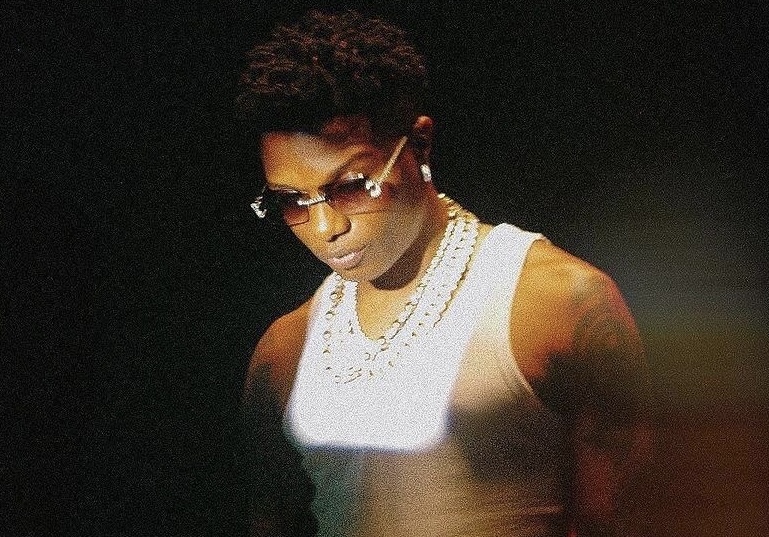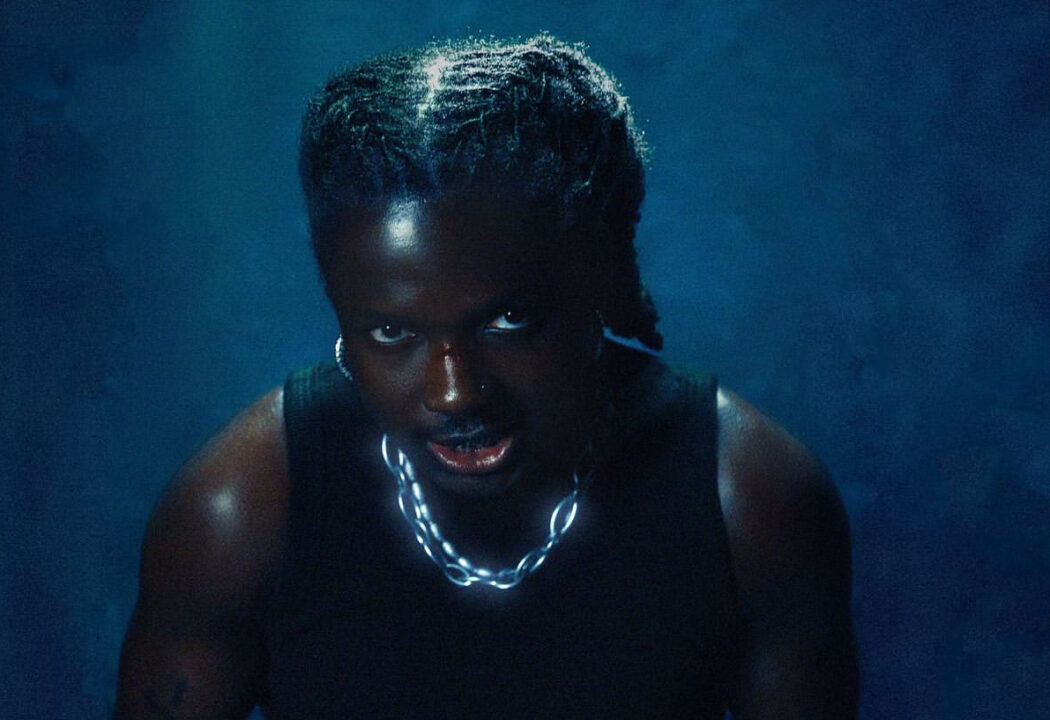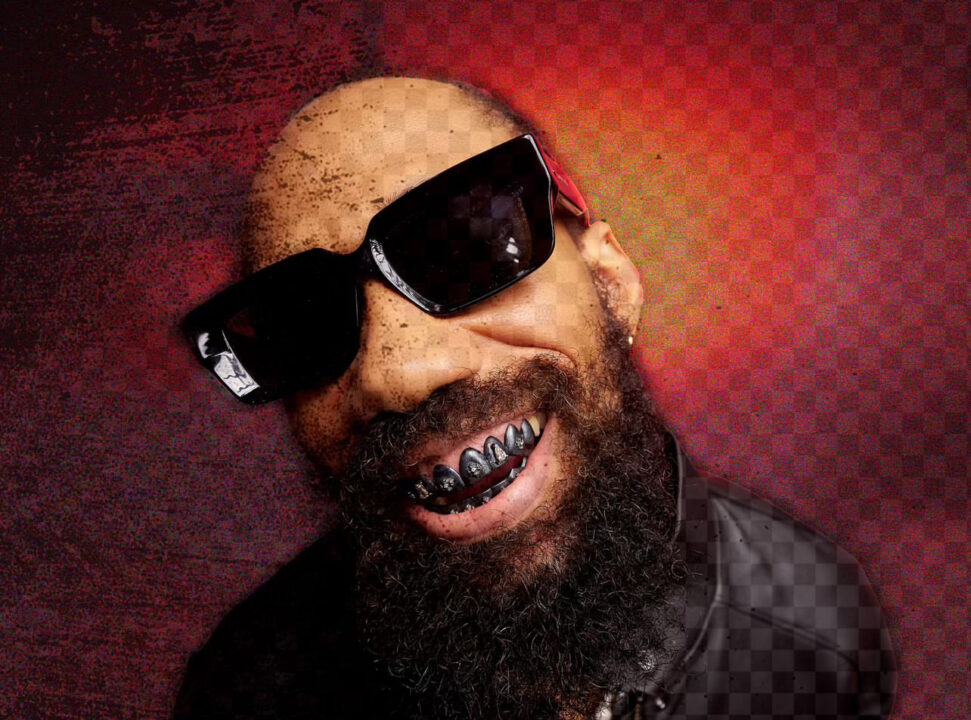Fireboy DML embraces his "Casanova with Roses" persona in ‘Adedamola’
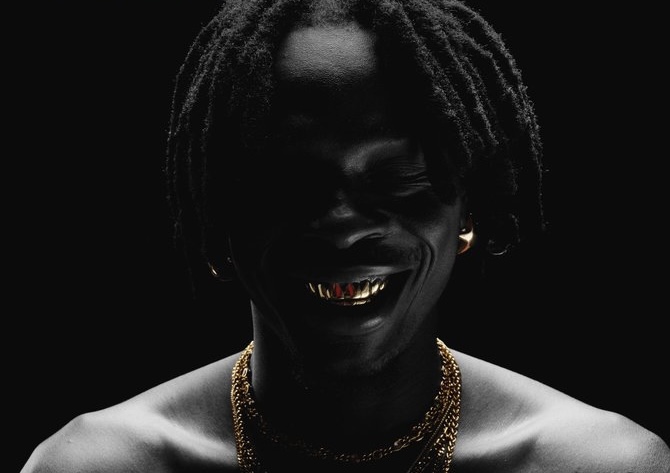
The singer has come full circle, returning to his roots and staying true to himself, and it shines through in this project where he seamlessly blends his different personas into a relatable and captivating whole.
Over the years, this exceptionally talented singer-songwriter has evolved, continuously sharing glimpses of his life at various stages. From an innocent lover boy to a rising star, navigating wealth, global recognition, personal struggles, and self-discovery, his music has mirrored this journey. With his debut album Laughter, Tears & Goosebumps, the world was introduced to a 23-year-old breakout star whose reality was centred on love, emotions, and fantasies. A year later, following chart dominance, awards, newfound wealth, and the challenges of fame, his sophomore album APOLLO reflected a shift from fantasy to reality. Fireboy began to explore themes of lust, sex, self-awareness, and introspection, as seen in tracks like '24 (Interlude),' where he grappled with the pressures of life in 'Airplane Mode' and even touched on the subject of mortality and legacy in 'Remember Me.'
Fast forward two years, and the now 26-year-old artist has spent three years navigating the highs and lows of global stardom. His experiences have shaped him, as he candidly admits in the opening track 'Change' from his third album, Playboy. As the album title suggests, the once soft-hearted Fireboy has transformed into a more hardened version of himself—a "Yoruba demon," as it is called —navigating a world that has toughened him. He’s become more carefree, indulgent, and detached from emotions, and for the sake of his sanity, he's decided to embrace the wild ride, even documenting his experiences with vices like MDMA in 'Peru.'
Now, five years into his superstar journey, Fireboy has seen it all. He appears to have a deeper understanding of himself and life, leading him to embrace his multifaceted identity. His latest album, titled Adedamola after his real name, represents this synthesis of his different personalities into a cohesive, authentic whole.
The album opens with 'Iseoluwa,' a groovy yet reflective track that translates to "the wonders of God" in Yoruba. The song's elegant introduction features the omele (a baby talking drum) flanked alongside the gangan (talking drum), creating a Selense or Jenleke vibe, meaning it’s not overboard, calm, but filled with enough rhythm to keep you shaking. Fireboy’s delivery is swift and focused, expressing gratitude, self-reflection, and optimism: "Life has been good to me; I do not take this with levity," he declares. The track, produced by Bassiqally and Nxrth (Fireboy's brother), is enhanced by soothing female backup vocals sprinkled across and a magical saxophone performance, making it a perfect intro and an instant Fireboy classic.
The energy picks up with 'Call Me,' a vibrant Afropop track that showcases Fireboy’s versatility beyond being tagged an "Afrobeats artiste." With a '90s pop influence, the song sees the loverboy confessing his love and commitment, while the log drum, often referred to as the "808" of modern Afrobeats, adds depth. The album then shifts gears with 'Ecstasy,' where Identity is switched as the frivolous playboy Fireboy comes to life. The song, themed around sex, sweat, flashbacks, and lust, features veteran Afrobeat musician Seun Kuti, whose saxophone performance adds soul to the track. However, the use of the log drum here slightly disrupts the glossiness expected in a song about lust—a balance that Fireboy had previously achieved on 'Tattoo' from his APOLLO album.
'Hell and Back' follows, where Fireboy’s vocal prowess takes centre stage, reminding listeners of his ability to deliver across genres regardless of the soundscape or tempo. The singer-songwriter shows he can sing-sing! like he did on 'Sing' with Oxlade. The song is both groovy and soulful, with the log drum, violin, and saxophone creating a rich soundscape. The album’s first guest appearance comes from Lojay on 'Letting Go,' a mid-tempo track about the difficulty of moving on. While it’s a solid record, one might expect more from the collaboration given the capabilities of both artistes.
Listeners are finally treated to one of the most anticipated tracks on the album, where the saxophone and violin blend together to evoke a wave of nostalgia. The tenor saxophone’s entrance is delivered with such vigour that it immediately stands out; it’s jazzy, bold, seasoned with experience, and unmistakably marked by Lagbaja's signature style. Traditional instruments like the omele and Lagbaja’s iconic bata drum provide the perfect rhythm, allowing Fireboy to flow effortlessly with his soul-stirring lyrics: "Sometimes I know it, sometimes I don’t know how to show it, but somewhere at the back of your mind, I hope that you know I love every single moment with you." Once again, Fireboy showcases his vocal prowess with subtle falsettos while performing alongside his childhood idol, who has been pretty inactive in the music scene, with the last time the icon surprising popped out being the AMVCA performance in 2022. To heighten the nostalgic feel, Lagbaja delivers a sensational verse that transports listeners back to the era of classic hits like the 2000-released 'Nothing for You.' The heavy traditional drums give the track a distinctively African and deeply rooted essence—thankfully, without any log drums. It’s a flawlessly executed song.
The album then slows down with the solemn acoustic tune 'Ready,' featuring Grammy-winning singer, songwriter, multi-instrumentalist, and bandleader Jon Batiste on keys. The soul-stirring chords provide a canvas for Fireboy to fully spread his wings and soar, which he does effortlessly on this track—he truly shines. Although Fireboy's vocal and lyrical delivery has been strong throughout the album, this song especially highlights his vocal brilliance. The energy picks up again with 'Wande’s Bop,' a track where Fireboy pays homage to the Afropop "source"—Wande Coal—whom he has consistently credited as a major influence. The song is intentionally crafted to echo the sound of Wande Coal’s 2011-2016 era, bearing similarities to 'The Kick.' It’s a club banger that Fireboy delivers with ease. The high tempo continues with the Afro-funk track 'Change Your Life,' dominated by vibrant trumpet lines, once again showcasing why Fireboy is the complete package—a true pop star capable of delivering across various genres.
One of the album's standout moments is 'Obaa Sima,' a song that, despite being released earlier, feels even more powerful in the context of the album. It's a prime example of how singles can find new life within an album, showing listeners the connection that might be missing as a single. This track is followed by 'Need Me,' which sonically picks up where 'Obaa Sima' left off. You might think it’s the previous song still playing until you realise it’s actually a new track. The song's themes focus on love and commitment. 'Yawa,' another pre-released song, sounds even better within the album's framework, with Fireboy's delivery on the second verse standing out as particularly impressive. Interestingly, the song features label colleagues Olamide and Asake as backup vocalists.
The album is close to curtain-falls with 'Everyday,' definitely a fan favourite because of how rhythmically pleasing it is yet poignant. The absence of unnecessary log drums makes it soulful and glossy, allowing the trumpet and the guitars to properly pierce through—something that could have also been achieved in 'Ecstasy.' The album concludes with 'Jon's Interlude,' a piano rendition of Fireboy's lyrics from 'Ready.' While soothing, this choice might not have been the most fitting way to end the album, especially after the spectacular introduction. A more impactful conclusion could have been achieved with an introspective-themed vocal delivery on a similar piano progression, helping to ground listeners after the album's dynamic journey. Additionally, if 'Jon's Interlude' were to remain, it might have worked better as a middle track, aligning more with the traditional role of an interlude. Overall, the album's ending could have been more compelling.
READ ALSO - Although experimental, Asake's 'Lungu Boy' comes across as the least of the trio
The production on the album was brilliant, with standout performances from producer and bassist Bassiqally and producer Nxrth, who worked on more songs than others. Bassiqally contributed to seven songs, including gems like 'Iseoluwa,' 'Back n Forth,' and 'Change Your Life,' while Nxrth came in behind with production credits on five records. The album also featured legendary ace producer ID Cabasa, alongside other incredible talents like Pheelz, Semzi, Magicsticks, Blaisebeatz, Telz, Jon Batiste, and others, which is why the album was so cohesive and organised, considering the many experienced creatives involved in the production.
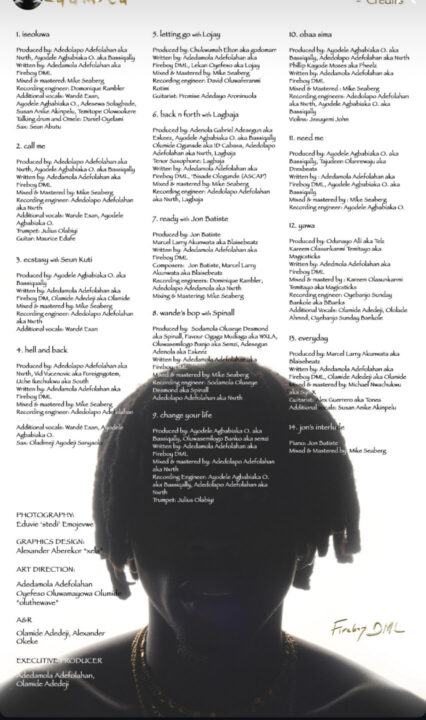
On Adedamola, Fireboy is able to merge his personalities as a bad boy and a lover boy on this album, hence the allusion to being a "Casanova with Roses" who would still open doors, send flowers, and do all that lovey-dovey stuff, which points to why he must have referred to the album as home. "Every single part of me went into this album. It's so personal, and it feels nostalgic, like a call to home. That's why it’s titled Adedamola," he said in an interview. With this project, Fireboy reminds everyone that he is truly in love with music and very intentional about his craft. However, this project could have had some commercial edge over others if it had a couple of bangers like 'Wande's Bop' to keep the clubs going. Regardless, the singer-songwriter makes very enjoyable music and will be here for a very long time.
Fireboy is one of the few Nigerian modern-age artistes who can properly curate an album with thematic and sonic cohesion. On this project, the singer demonstrated that there’s probably no need to over-experiment to show growth. It is very possible to stretch your soundscape while still remaining cohesive, as he has done on this album. Although it may not be his best album, it is definitely just slightly behind his debut album 'Laughter, Tears, and Goosebumps'. However, considering the spectrum of growth (as you wouldn’t expect him to create an LTG-type project at his current age), this might actually be his best project so far. Regardless, the gap between this album and LTG is not so wide, and it is definitely in the Album of the Year conversation as it stands. A solid 8.7.



